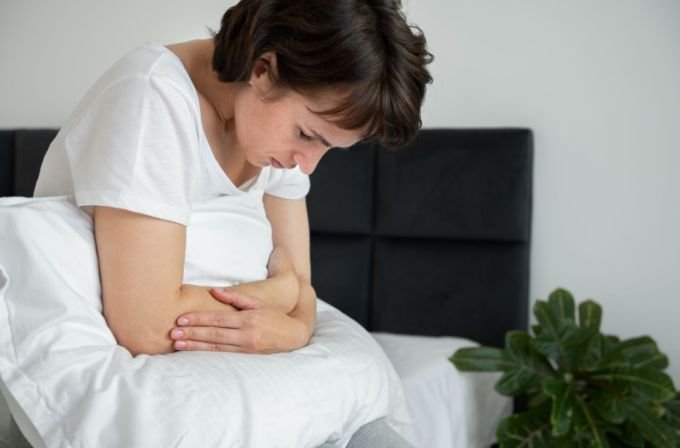
Polycystic ovarian disease 10
Doctor Nguyen Minh Thuy, Center for Reproductive Support, Hanoi Tam Anh General Hospital (IVFTA), said that polycystic ovary syndrome (PCOS) is a form of systemic metabolic and endocrine disorder.
The cause of this syndrome may be due to genetic factors combined with inappropriate nutrition.
The increase in male hormone levels in the body also causes hair loss on the face, back, abdomen and chest (about 70%).
However, according to Dr. Thuy, about 70% of cases do not know they have the disease, so they do not treat it early, leading to many serious related diseases.
Obesity: According to the American College of Obstetricians and Gynecologists, about 80% of women with PCOS are overweight or obese.
Diabetes: Women with this disease often have insulin resistance (the hormone that regulates blood sugar levels), causing blood glucose levels to increase.
Dr. Thuy led a study following 255 women with PCOS for 10 years published in the journal Diabetes in 2012, showing that 39.3% of women developed type 2 diabetes. This number in normal women is
Endometrial cancer: An April study by British scientists based on 10 studies, more than 66,360 women, showed that women with PCOS are 5 times more likely to have endometrial cancer than those with PCOS.
Infertility: About 70-80% of women with polycystic ovary syndrome have fertility problems, according to Dr. Thuy.
Insulin resistance in people with PCOS causes the body to produce more insulin than needed, causing excess, thereby triggering the ovaries to increase male hormone production, hindering ovulation.
Polycystic ovary syndrome not only affects fertility but also increases the risk of many serious diseases.
Metabolic disorders: PCOS and obesity can both lead to metabolic disorders such as high blood pressure, high blood sugar, low HDL cholesterol, high LDL cholesterol… Thereby increasing the risk of cardiovascular disease and diabetes.
Sleep apnea syndrome: This is a condition in which the patient stops breathing or reduces breathing for more than 10 seconds while sleeping, then wakes up with a feeling of suffocation and shortness of breath.
This syndrome is common in overweight and obese people.
Depression: Hormonal changes lead to baldness, hirsutism, dark skin, uncontrolled weight gain, acne… which can negatively affect women’s emotions and spirit.
According to Dr. Thuy, PCOS can be diagnosed through clinical examination, blood tests, and ultrasound.
Dr. Thuy said losing just 5-10% of body weight can help menstruation become more regular, improve cholesterol levels, reduce insulin resistance and the risk of cardiovascular disease and diabetes.
People with PCOS should limit refined carbohydrates such as pasta, rice, cereals…;
Moderate exercise for 30 minutes a day, 5 days a week not only helps you lose weight and relieve stress, but also improves ovulation and insulin levels.
If there is no need to have children, women with polycystic ovary syndrome can prevent pregnancy with hormonal contraceptives, injections, and intrauterine devices to help regular menstruation and reduce the risk of endometrial cancer.
In cases where it is difficult to get pregnant naturally, the doctor may prescribe laparoscopic surgery to cut the angle of the ovaries or create small holes in the ovaries (ovarian cautery surgery) to reduce male hormone levels.
Women with this disease who are infertile still have the opportunity to become mothers thanks to assisted reproductive methods such as artificial insemination (IUI) and in vitro fertilization (IVF).
Readers send questions about infertility here for doctors to answer



